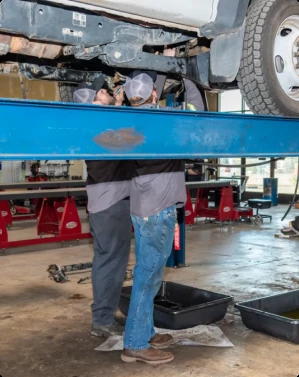When it comes to engine performance, two terms come up constantly: horsepower and torque. Whether you’re comparing vehicles, tuning an engine, or reviewing torque specs, understanding what these terms really mean can help you make better decisions.
In this guide, we’ll break down how horsepower and torque affect your vehicle’s performance, how they’re calculated, and how they relate to practical tasks like using a bolt torque chart or understanding torque specifications for bolts.
What Is Torque?
In simple terms, torque is a measure of rotational force. Think of it as the twisting power that gets your vehicle moving. It’s measured in pound-feet (lb-ft) or Newton-meters (Nm) and is especially important in tasks that require low-end power, like towing or accelerating from a stop.
If you’ve ever looked up what is considered good torque in a car, the answer depends on the vehicle type:
- Sports cars focus more on high-end horsepower
- Trucks and diesel engines prioritize torque
The average torque of a car varies but is usually between 150–250 lb-ft in modern sedans and over 400 lb-ft in powerful pickups or performance vehicles.
What Is Horsepower?
Horsepower (HP) is a measure of how quickly work gets done. It combines torque with engine speed (RPM) to describe how much power the engine can produce over time. In general:
- Torque is what gets you moving
- Horsepower is what keeps you going faster
The formula:
Horsepower = (Torque × RPM) ÷ 5,252
How Are CC and Horsepower Related?
Cubic centimeters (cc) refer to engine displacement, which measures the size of the engine. A larger engine (more cc) can usually generate more power, but it doesn’t automatically mean more horsepower or torque.
Looking for conversions?
- Use a cc to horsepower calculator
- Try a cc to hp converter if you’re comparing small engines (e.g., lawn equipment or motorcycles)
Common searches include:
- 1800 cc to horsepower
- cc to bhp calculator
- hp to cc conversion calculator
Keep in mind, these tools offer estimates—actual horsepower also depends on engine efficiency, compression ratio, fuel delivery, and tuning.
The Role of Torque in Fasteners and Mechanics
Outside of engine power, torque is just as important in mechanical applications like bolt tightening. Applying the correct torque specs ensures safety, durability, and performance in mechanical assemblies.
Why Do Torque Specifications Matter?
Using incorrect torque can lead to:
- Under-tightening: which causes components to come loose
- Over-tightening: which can damage threads or cause bolt failure
That’s why mechanics and engineers use references like:
- Bolt torque spec chart
- Torque wrench settings chart
- Bolt torque specification chart
- Metric torque chart for bolts
Common Torque Specs by Bolt Size
Here are examples of common torque values:
Bolt SizeTorque (ft-lb)5/16″ bolt~15–253/8″ bolt~30–401/2″ bolt~70–905/8″ bolt~140–160Grade 8 bolts require higher torque than Grade 5 due to strength
These values may differ depending on lubrication, bolt grade, and thread type. Always refer to a standard bolt torque chart or torque spec chart from a trusted source when working with precision assemblies.
Bolt Torque Patterns: Why Sequence Matters
When tightening multiple bolts, following the correct pattern is essential. Uneven tightening can warp components like cylinder heads, gaskets, or wheel hubs.
Common patterns include:
- 8 bolt torque sequence
- 16 bolt torque sequence
- 20 bolt torque pattern
These patterns apply balanced force across the surface and help avoid leaks or damage. If you’re working with automotive or mechanical assemblies, always consult a torque guide for bolts for correct sequence and values.
Tools to Use
When applying torque specs, accuracy is critical. Use:
- Torque wrenches calibrated for your required range
- A bolt torque table or torque value chart
- Lubrication recommendations (torque values may vary dry vs. oiled)
Final Thoughts
Whether you’re optimizing an engine or tightening a cylinder head, torque plays a vital role in performance and safety. From understanding horsepower vs torque to referencing a bolt torque chart, having a firm grasp on these concepts helps you work smarter and avoid costly mistakes.
If you’re tuning a truck, replacing parts, or just curious about what your 1800cc engine can really do, knowing how to use a cc to hp calculator, when to check torque specs, and how to apply correct bolt torque will take you further—literally and mechanically.


